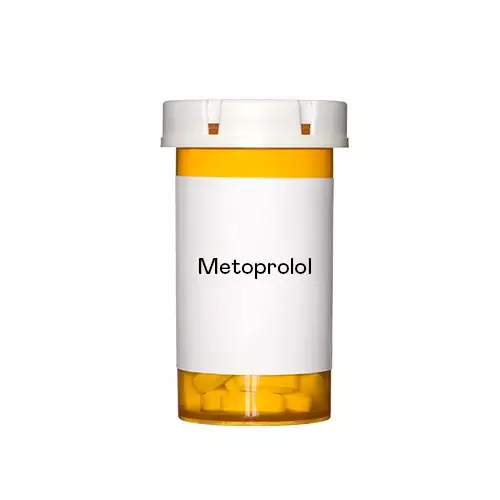- Home
- Medical news & Guidelines
- Anesthesiology
- Cardiology and CTVS
- Critical Care
- Dentistry
- Dermatology
- Diabetes and Endocrinology
- ENT
- Gastroenterology
- Medicine
- Nephrology
- Neurology
- Obstretics-Gynaecology
- Oncology
- Ophthalmology
- Orthopaedics
- Pediatrics-Neonatology
- Psychiatry
- Pulmonology
- Radiology
- Surgery
- Urology
- Laboratory Medicine
- Diet
- Nursing
- Paramedical
- Physiotherapy
- Health news
- Fact Check
- Bone Health Fact Check
- Brain Health Fact Check
- Cancer Related Fact Check
- Child Care Fact Check
- Dental and oral health fact check
- Diabetes and metabolic health fact check
- Diet and Nutrition Fact Check
- Eye and ENT Care Fact Check
- Fitness fact check
- Gut health fact check
- Heart health fact check
- Kidney health fact check
- Medical education fact check
- Men's health fact check
- Respiratory fact check
- Skin and hair care fact check
- Vaccine and Immunization fact check
- Women's health fact check
- AYUSH
- State News
- Andaman and Nicobar Islands
- Andhra Pradesh
- Arunachal Pradesh
- Assam
- Bihar
- Chandigarh
- Chattisgarh
- Dadra and Nagar Haveli
- Daman and Diu
- Delhi
- Goa
- Gujarat
- Haryana
- Himachal Pradesh
- Jammu & Kashmir
- Jharkhand
- Karnataka
- Kerala
- Ladakh
- Lakshadweep
- Madhya Pradesh
- Maharashtra
- Manipur
- Meghalaya
- Mizoram
- Nagaland
- Odisha
- Puducherry
- Punjab
- Rajasthan
- Sikkim
- Tamil Nadu
- Telangana
- Tripura
- Uttar Pradesh
- Uttrakhand
- West Bengal
- Medical Education
- Industry
Metoprolol Benefits Patients With Hypertrophic Obstructive Cardiomyopathy - TEMPO Trial

The complexity of hypertrophic cardiomyopathy (HCM) molecular pathophysiology and the efficacy of septal reduction therapies were combined to slow the development of targeted pharmacologic therapies. A recent study suggests that metoprolol reduced left ventricular outflow tract obstruction at rest and during exercise and improved symptoms and quality of life among patients with HCM. The study findings were published in the Journal of American College of Cardiology on December 13, 2021.
β-Blockers (BB) represent first-line therapy in symptomatic obstructive HCM (oHCM), and propranolol is the only medication with a U.S. Food and Drug Administration label for the treatment of oHCM. Recently, Dr Anne M. Dybro and her team conducted a study to investigate the effects of metoprolol on left ventricular outflow tract (LVOT) obstruction, symptoms, and exercise capacity in patients with obstructive HCM.
It was a double-blind, placebo-controlled, randomized crossover study of 29 patients with obstructive HCM and New York Heart Association (NYHA) functional class II or higher symptoms. Patients were administered with metoprolol or placebo for 2 consecutive 2-week periods in random order. The researchers evaluated the LVOT gradients, NYHA functional class, Canadian Cardiovascular Society (CCS) angina class, Kansas City Cardiomyopathy Questionnaire Overall Summary Score (KCCQ-OSS), and cardiopulmonary exercise testing.
Key findings of the study:
♦ Upon analysis, the researchers found that the LVOT gradient:
- At rest was25 mm Hg with metoprolol succinate and 72 mm Hg with placebo.
- At peak, exercise was 28 mm Hg with metoprolol succinate and 62 mm Hg with placebo.
- Post-exercise, it was 45 mm Hg with metoprolol succinate and 115 mm Hg with placebo.
- During Valsalva, it was 94 mm Hg with metoprolol succinate and 119 mm Hg with placebo.
♦ They noted that during metoprolol treatment, 14% of patients were in NYHA functional class III or higher compared with 38% of patients receiving placebo.
♦ Similarly, they noted that no patients were in CCS class III or higher during metoprolol treatment compared with 10% during placebo treatment.
♦ The authors wrote, "These findings were confirmed by higher KCCQ-OSS during metoprolol treatment (76.2 ± 16.2 vs 73.8 ± 19.5; P = 0.039)".
♦ Measures of exercise capacity, peak oxygen consumption, and N-terminal pro–B-type natriuretic peptide did not differ between the study arms.
The authors conclude, "Compared with placebo, metoprolol reduced LVOT obstruction at rest and during exercise, provided symptom relief, and improved quality of life in patients with obstructive HCM. Maximum exercise capacity remained unchanged".
In an accompanying editorial, Dr Ahmad Masri wrote, "Dybro et al should be congratulated for conducting the first comprehensive RCT of BB in oHCM in over one-half century after their initial use for this disease. The trial provides important data to guide the use of metoprolol in the era of novel therapeutics in oHCM".
He further added, "Pharmacotherapy for HCM continues to evolve, with novel therapies directly targeting the molecular pathophysiology of the disease, leading to reappraisal of our current standard of care therapies".
For further information:
Dybro AM, Rasmussen TB, Nielsen RR, Andersen MJ, Jensen MK, Poulsen SH. Randomized Trial of Metoprolol in Patients With Obstructive Hypertrophic Cardiomyopathy. J Am Coll Cariol. 2021 Dec, 78 (25) 2505–2517.
Medical Dialogues Bureau consists of a team of passionate medical/scientific writers, led by doctors and healthcare researchers. Our team efforts to bring you updated and timely news about the important happenings of the medical and healthcare sector. Our editorial team can be reached at editorial@medicaldialogues.in.
Dr Kamal Kant Kohli-MBBS, DTCD- a chest specialist with more than 30 years of practice and a flair for writing clinical articles, Dr Kamal Kant Kohli joined Medical Dialogues as a Chief Editor of Medical News. Besides writing articles, as an editor, he proofreads and verifies all the medical content published on Medical Dialogues including those coming from journals, studies,medical conferences,guidelines etc. Email: drkohli@medicaldialogues.in. Contact no. 011-43720751


